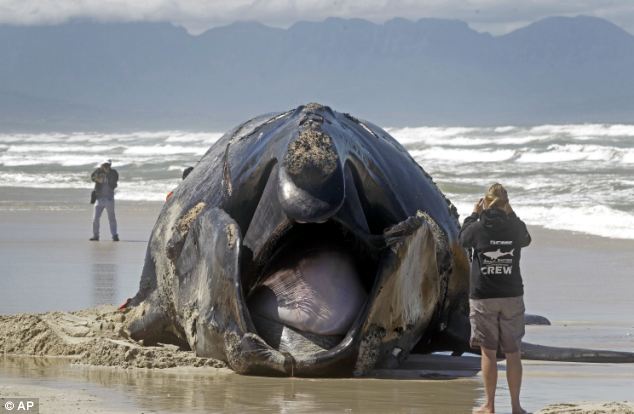
A large section of coastline in South Africa has been closed after a 15-metre whale washed ashore following an attack by Great White sharks.
The giant whale was removed from the surf after its carcass attracted high numbers of great whites to the coast by Muizenberg beach, near Cape Town, on Sunday.
Authorities have since taken the southern right whale from the beach but have closed off a stretch of shore from Muizenberg to Monwabisi “as a precaution”.
Disaster response teams had moved swiftly to get the animal out of the water and onto a flat-bed truck – no easy task when dealing with a species of whale that can weigh up to 47 tons.
Wilfred Solomons-Johannes, a spokesman for Cape Town’s disaster risk management centre, said: “A decision was taken to begin the recovery operation immediately because of the increase of shark activity off beaches along the False Bay coastline.”

The warning did not stop curious onlookers streaming to the site.
Claire McKinnon, manager of the Cape Town cleansing and solid-waste management department, said samples were taken from the carcass to enable pathologists to establish the cause of death before it was disposed of at a landfill site.
Once the whale was out of the water, a bulldozer rolled it over the sand.
Wilfred Solomons-Johannes said it was not known whether the whale was alive when the sharks attacked it or had succumbed to an illness.
“Under normal circumstances predators such as sharks often sneak up on their prey from behind or underneath. Predators don’t usually face off in a fight,” he said.
“A predator goes in quickly and quietly attacks the prey. Predators choose the ill, injured, young or old animals to hunt because they are easier to catch.”
In 2005, local teen J.P. Andrews was attacked by a great white shark while surfing off Muizenberg beach.
Doctors pronounced him dead on the beach – but he survived, although he lost his right leg.
[youtube fCRWzMI7JBs]